Imagine a world where security professionals can anticipate risks before they arise, where real-time alerts powered by artificial intelligence (AI) enhance safety for people and places alike.
This vision is now a reality, thanks to advancements in technology. From smart dashboards to Internet of Things (IoT) sensors, digital tools are reshaping how we safeguard communities.
In Singapore, this transformation is central to the Ministry of Home Affairs’ Security Industry Transformation Map 2025, which seeks to build a future-ready, multi-skilled and digitally literate security workforce.

In line with these goals and the national SkillsFuture movement for the workforce to be AI-ready, Certis Corporate University (CCU) – Certis’ learning and development hub – has partnered with Singapore University of Technology and Design (SUTD) to launch the Certis-SUTD AI Literacy Programme. This formalised training initiative, an industry first, is part of a major investment by Certis in workforce development and training.
Leveraging the strengths of both institutions, the programme empowers security professionals through development and training of their AI competencies. The course is designed across three levels of proficiency and forms part of a broader pathway towards an SUTD postgraduate programme.
Dr Jaclyn Lee, Certis Group’s chief human resources officer and CCU’s chief executive, shared that the launch of the Certis-SUTD AI Literacy Programme reflects the organisation’s commitment to equipping its workforce with the skills needed to navigate an evolving security landscape.
“At Certis, we recognise the growing importance of AI and digital literacy in transforming the security sector. By investing in AI training, we’re not just preparing our employees for the future, we’re ensuring the security sector becomes more agile, data-driven and responsive to the demands of the modern world,” she said.
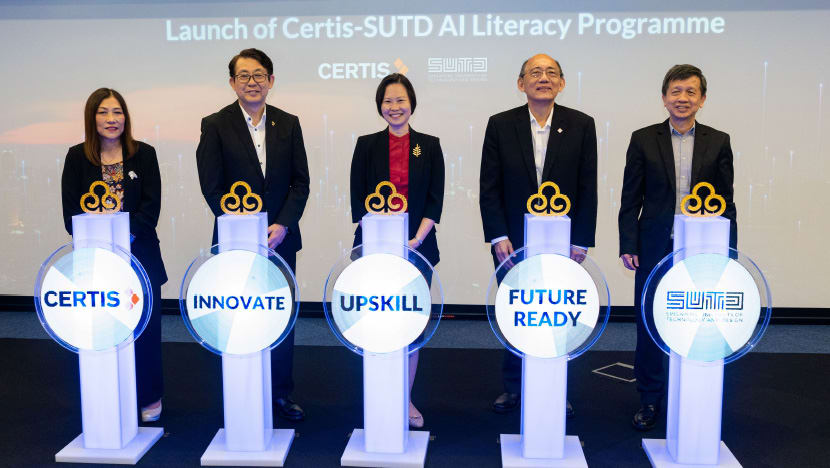
A HANDS-ON INTRODUCTION TO AI IN SECURITY
On Oct 11, the Certis-SUTD AI Literacy Programme was officially launched at Certis Commonwealth. Participants in the programme will attend courses at the SUTD campus, where modules will be taught collaboratively by SUTD and Certis lecturers and trainers.
Certis has set an ambitious goal of upskilling 5,000 industry professionals by 2027, beginning with 2,000 Certis managers and security supervisors in the programme’s first year. Dr Tan Cheng Kok, digital learning solutionist at CCU, noted that the programme will be extended to the wider security sector from mid-2025 onwards.
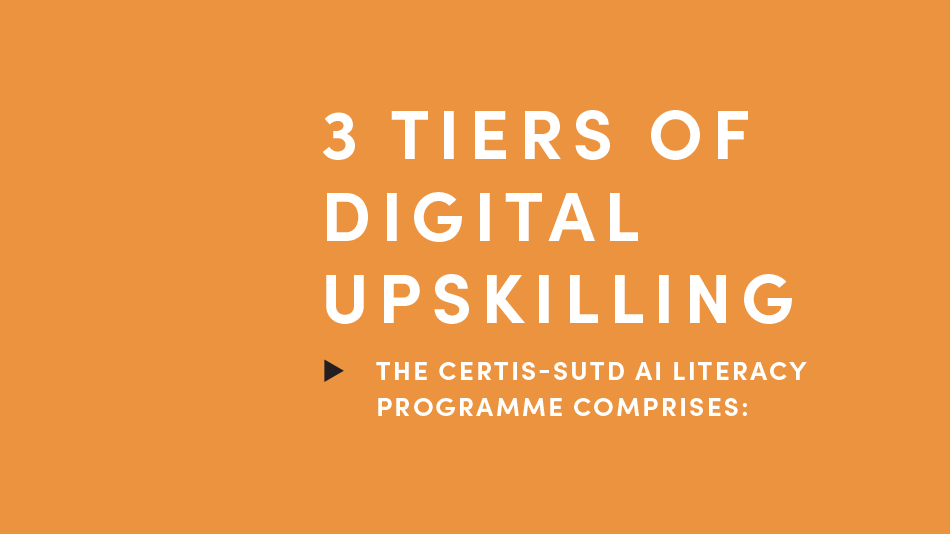
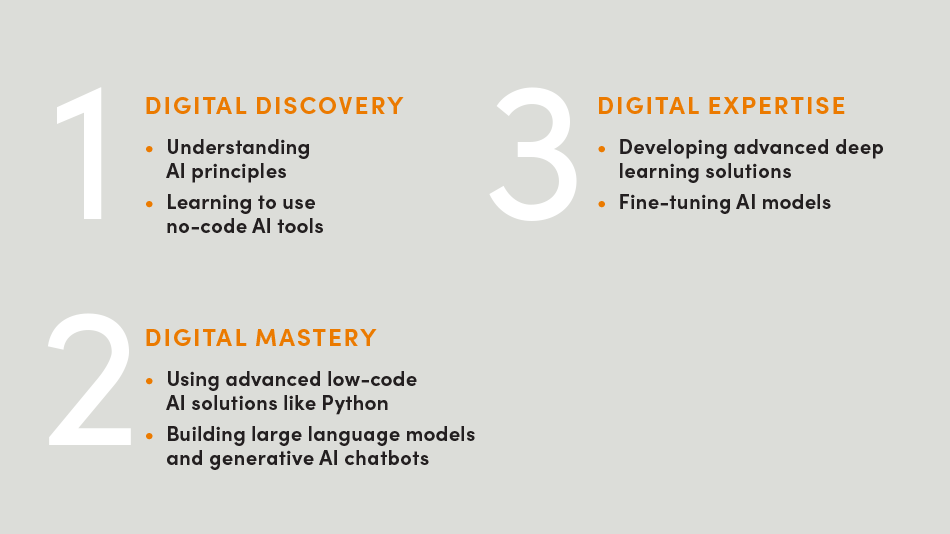
In the first phase, participants will take part in a two-day SkillsFuture Singapore course, AI Basics for Productivity. This course introduces the latest AI tools, such as Microsoft Copilot, and includes hands-on exercises in data analysis, automation and problem-solving.
“The AI Basics for Productivity course is designed to lay a robust foundation of digital knowledge that will serve as a springboard for further learning. By sparking interest in AI’s many applications, we aim to open participants’ minds to the vast potential of this transformative technology. Our goal is to inspire and equip individuals with the skills necessary to thrive in the digital age,” said Dr Tan.
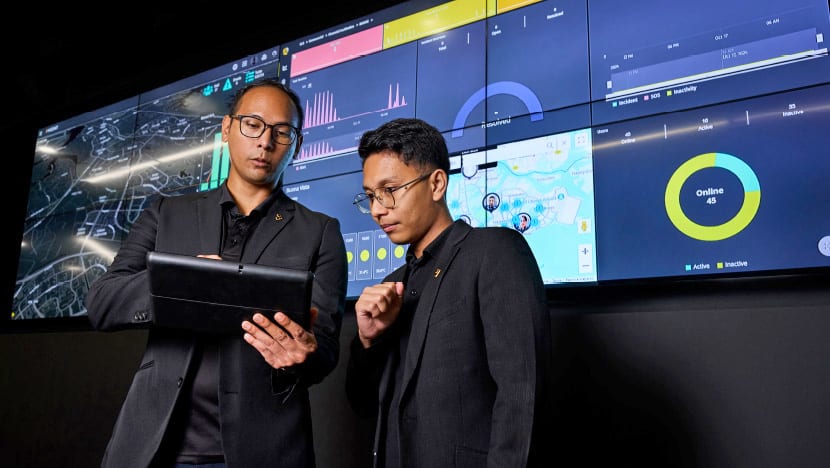
The course, which began its pilot run in September this year, will offer learners a comprehensive journey through the landscape of AI, covering its history, advancements and applications.
“Participants will explore real-life case studies, such as AI’s use in media to detect misinformation and in finance to combat fraud. The course also addresses the ethical and societal impacts of AI as well as envisions the future workplace, equipping individuals with the knowledge and skills to harness AI in modern business environments,” said Mr John Leong, director of SUTD Academy.
NEXT-GENERATION COMMAND AND CONTROL
The Certis-SUTD AI Literacy Programme aims to elevate productivity and efficiency for security professionals by equipping them with expertise in AI-enabled technologies, including Certis’ proprietary command-and-control systems, Mozart and Argus.
-
Launched in 2018, Mozart is an award-winning integrated security solution that uses automation and analytics to perform a full range of functions, including facilities management, security operations and guest management.
-
By collecting data from a wide pool of sources, including smart CCTVs, IoT sensors and Argus, Certis’ command and control app for security personnel, Mozart provides real-time insights that enable swift action. For example, if a child wearing a red T-shirt goes missing in a shopping mall, Mozart can analyse video feeds from CCTVs to identify the child based on his clothing. The information is then sent through Argus to Certis officers on the ground, enabling them to locate the child quickly.
-
According to Certis, clients have reported a 66 per cent improvement in incident response time and a 20 per cent reduction in manpower requirements after deploying Mozart.
-
Mr Robin Goh, senior vice president and head of group communications and marketing at Certis, noted that Mozart and Argus can boost security operations and outcomes by enhancing employees’ proficiency. “By mastering these advanced tools, security officers can maximise their capabilities in real-time situational awareness, smart monitoring and predictive maintenance. This expertise enables them to respond swiftly to threats, optimise resources and maintain high standards of facility management,” he said.
REDESIGNING SECURITY CAREERS FOR AN AI-POWERED FUTURE
AI is not only transforming security capabilities – it’s also reshaping the future of security careers, unlocking new opportunities for innovation and growth.
According to Dr Lee, integrating AI into daily operations will enable Certis to undertake strategic job redesign and empower its employees, especially those on the frontline, to focus on more meaningful work instead of repetitive tasks.
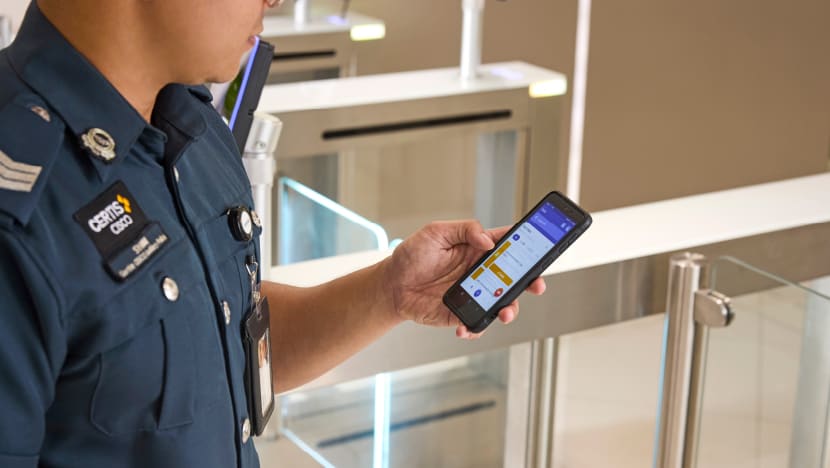
“AI has the potential to transform the work scope for frontline security professionals. By automating routine and repetitive tasks, AI frees employees to engage in more strategic activities, such as threat analysis, emergency response planning and stakeholder communication,” she said. “This shift not only enhances job satisfaction but also fosters a culture of continuous learning and skill development, preventing career stagnation.”
In the office, Certis’ citizen developers are also benefitting from AI. With their knowledge of low-code technologies, they can build or customise apps or platforms that streamline work processes and enhance operational efficiency. These skills and innovations improve workplace contributions and create pathways for career advancement.
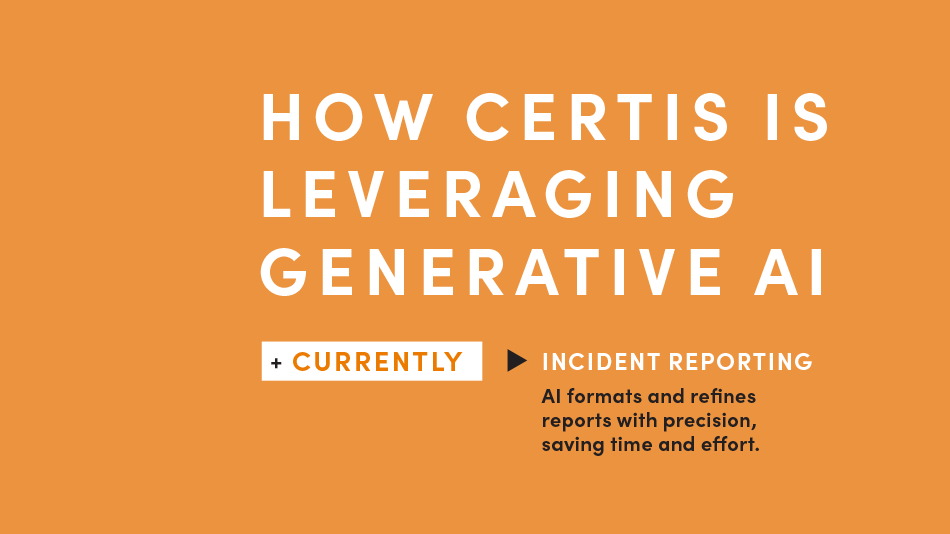
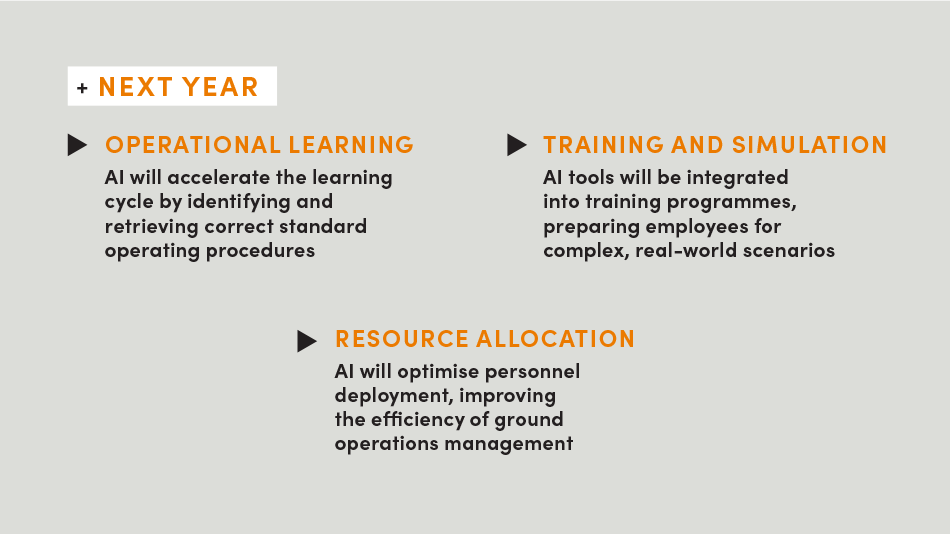
Dr Lee affirmed that the Certis-SUTD AI Literacy Programme is a key component of the company’s long-term strategy to drive workplace transformation through AI, benefitting both its security solutions and its workforce.
“The Certis-SUTD AI Literacy Programme underscores our dedication to nurturing a culture of continuous learning and innovation,” she said. “By investing in our employees’ education, we not only enhance our own capabilities but also set a new industry standard. This initiative aims to elevate security standards and best practices, ensuring collective progress in an increasingly digital world.”













